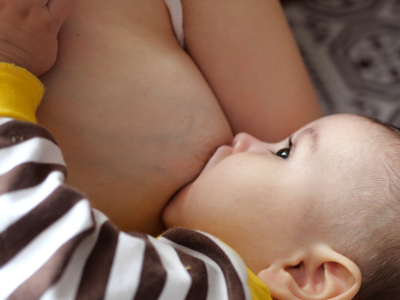Every parent starts their feeding journey with hopes, plans – and often, a fair few expectations. We hear phrases like “breast is best” so often that many of us assume breastfeeding will come naturally. But the reality for many parents is very different – and that’s something we need to talk about more openly.
The Expectation vs. The Reality
Breastfeeding can be beautiful, but it can also be incredibly hard. It’s okay to feel confused or disappointed if your experience hasn’t matched what you were expecting. Struggling to get a good latch, dealing with painful feeds, low supply, or navigating mastitis can leave you feeling overwhelmed, isolated, or even like you’re failing.
You’re not failing. You’re doing your best – and that matters more than anything.
Mastitis and Other Challenges
Mastitis is more common than many realise. It can be painful, exhausting, and emotionally draining. Often, parents aren’t even told what signs to look out for, or what support is available. Spotting the symptoms early and reaching out for help can make all the difference.
Mastitis happens when breast tissue becomes inflamed, usually due to a blocked milk duct or infection. It can come on suddenly and feel like a total shock, especially if you didn’t know what signs to look out for.
Common Symptoms of Mastitis Include:
• A red, hot, swollen area on the breast
• Pain or a burning sensation during or between feeds
• Flu-like symptoms such as fever, chills, aches, and fatigue
• A general feeling of being unwell
What Can Help?
• Frequent feeding or expressing to keep milk flowing
• Gentle breast massage during feeding or expressing
• Warm compresses before feeding and cold compresses after to ease inflammation
• Rest and hydration – your body needs time to recover
• Medical advice – Sometimes antibiotics are needed, and that's okay, especially if symptoms don’t improve after 24 hours or you have a fever. Getting the right help early can prevent complications and support your feeding journey.
It’s Okay if You’re Struggling
Whether you’re breastfeeding, bottle feeding, expressing, or doing a combination – feeding your baby can be a tough and emotional experience. It’s okay if it’s not what you imagined. It’s okay if you’re exhausted. It’s okay if things change.
What’s not okay is feeling like you have to face it all alone.
The Power of Peer Support
Sometimes, what makes the biggest difference is talking to someone who’s been there too – someone who gets it. Peer supporters offer understanding, encouragement, and practical tips without judgement. They’ll listen to your story and help you find a way forward that feels right for you.
We believe every parent deserves to feel supported, heard, and respected – whatever their feeding journey looks like.
A few tips from our Peer Supporters:
Every journey is different, but these little tips can make a big difference in your day-to-day:
• The first few days are key for getting breastfeeding established – don’t hesitate to ask for support.
• Keep snacks and a drink within reach – breastfeeding can make you really thirsty and hungry!
• Use pillows to support both your baby and your arms – comfort matters for both of you.
• Learn about cluster feeding – it’s totally normal (and temporary!), even if it feels like all you're doing is feeding.
• Understand how to tell your baby is thriving – plenty of wet nappies, alertness, and weight gain are good signs.
• Know that your baby’s stomach is tiny at birth – feeds may feel constant, but that’s how milk supply is built.
• Learning a bit before baby arrives can really help – antenatal education builds confidence and reduces stress.
You’re not alone this World Breastfeeding Week, and let’s be honest about the ups and downs. Let’s celebrate every parent doing their best – even when that looks different than expected. And let’s remind each other that support is out there, and asking for help is a sign of strength, not weakness.
💛 However you feed your baby, you deserve kindness, support, and community.


